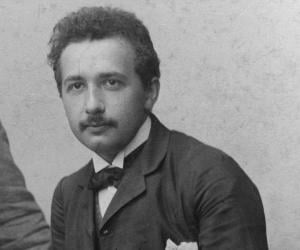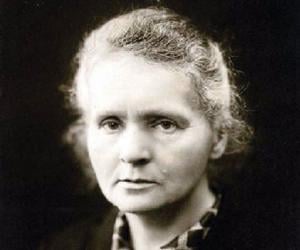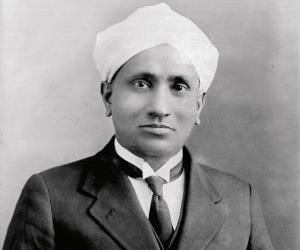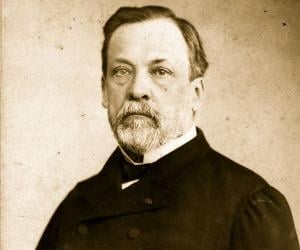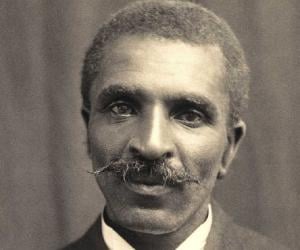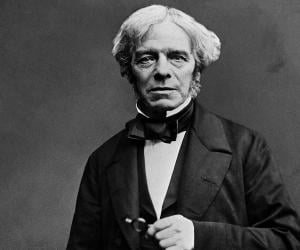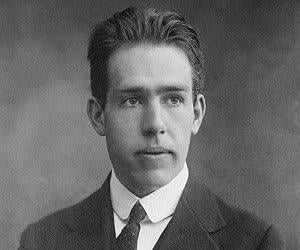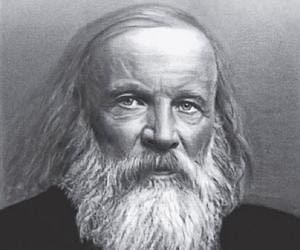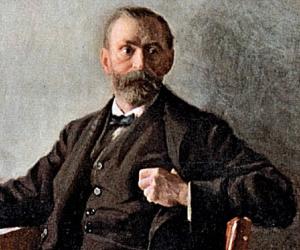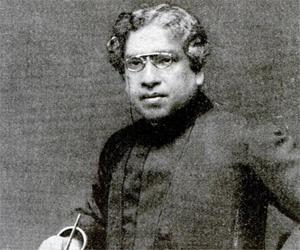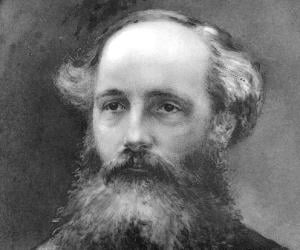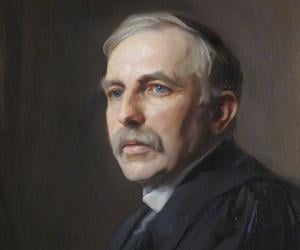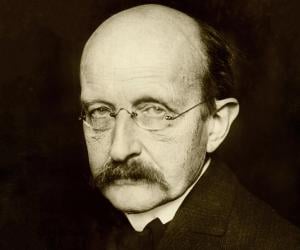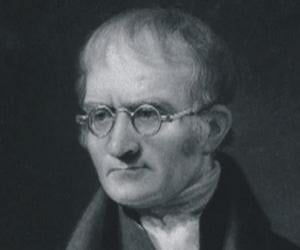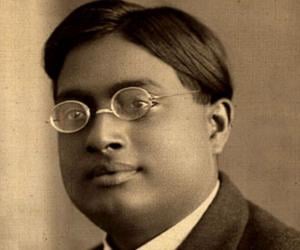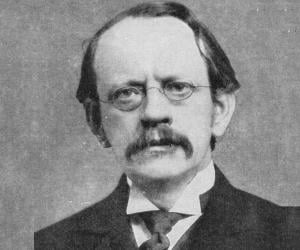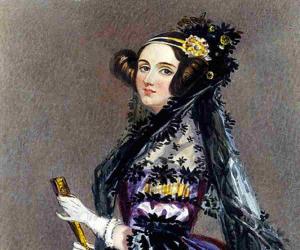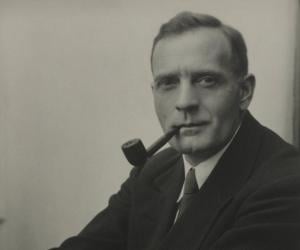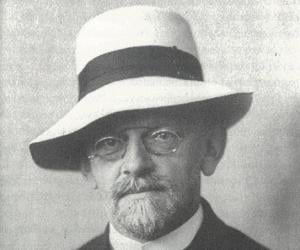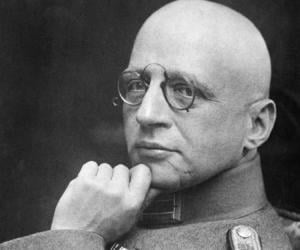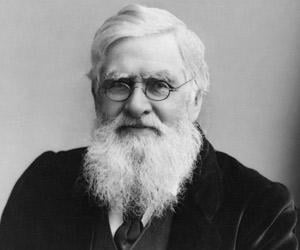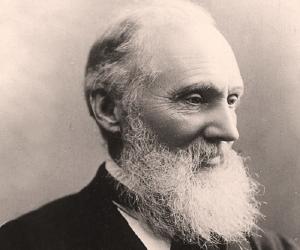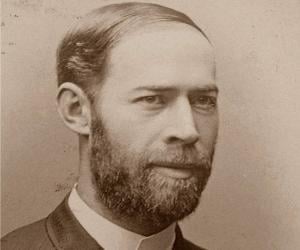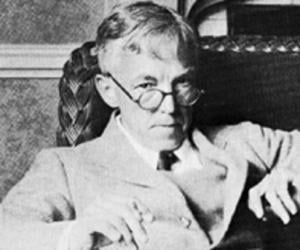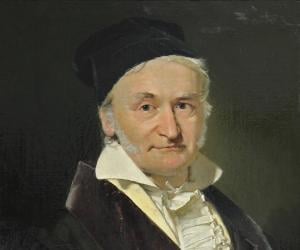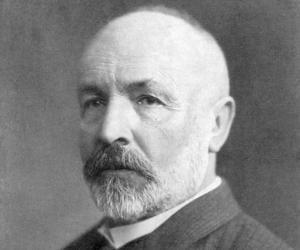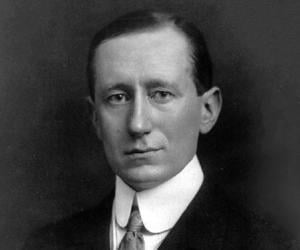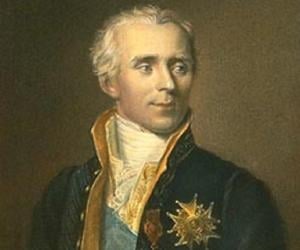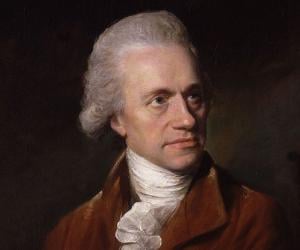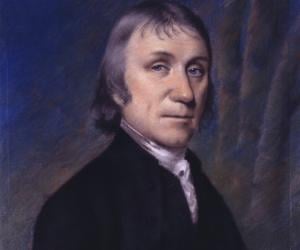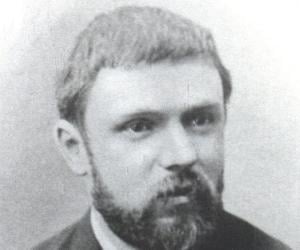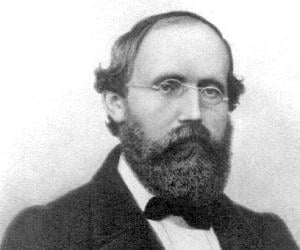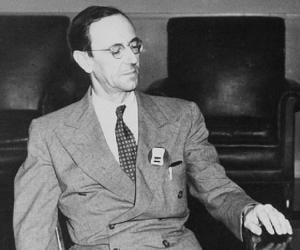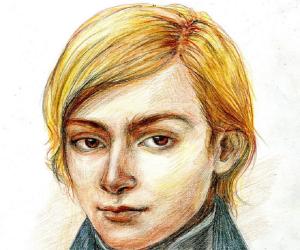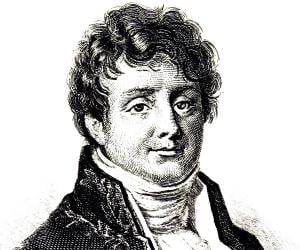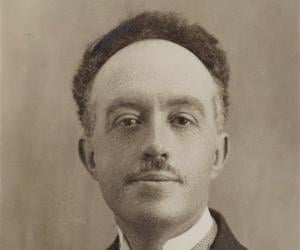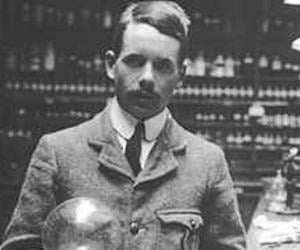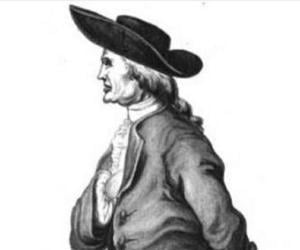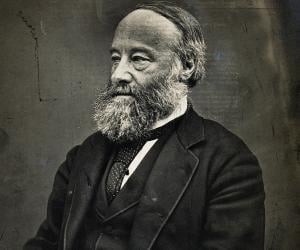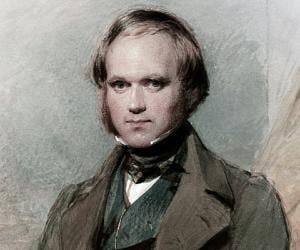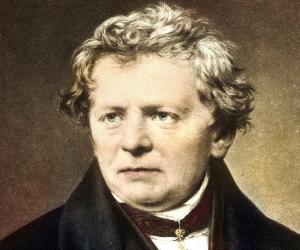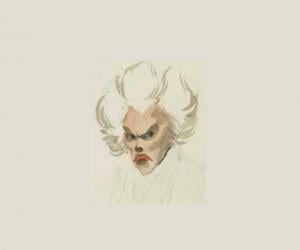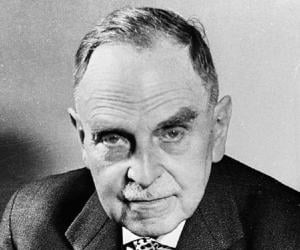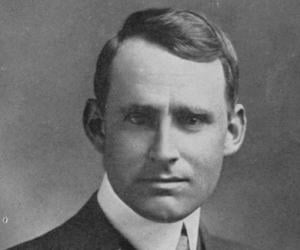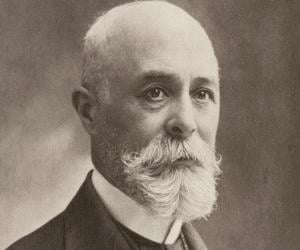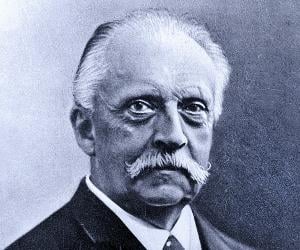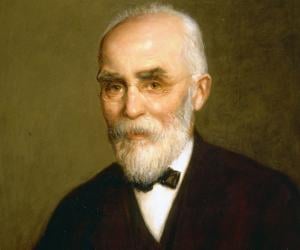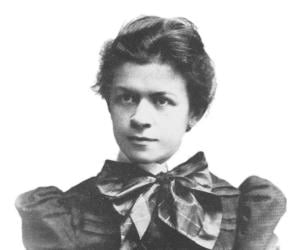Michael Faraday was an English scientist known for his contribution to the study of electrochemistry and electromagnetism. Considered one of the most influential scientists ever, Faraday's inventions of electromagnetic rotary devices established the basis for electric motor technology. His research also helped understand the concept of the electromagnetic field. Ernest Rutherford called him one of the greatest scientific discoverers ever.
Alfred Nobel was a Swedish chemist, engineer, and inventor. A prolific inventor, he held 355 different patents. Most popular as the inventor of dynamite, he was concerned with how he would be remembered after his death and bequeathed his fortune to the Nobel Prize institution. A wide traveler, he was proficient in several languages.
Indian physicist, biologist, and plant physiologist Jagadish Chandra Bose revolutionized science with his research on how plants and animals react to external stimuli. He founded the Bose Institute, made pioneering contribution to the field of radio and microwave optics, and also penned one of the first works of Bengali science fiction.
Scottish physicist James Maxwell’s contributions included the formulation of the classical theory of electromagnetic radiation and the production of the first light-fast color photograph. His Maxwell–Boltzmann distribution explored the kinetic theory of gases. He has also written poems and was an Elder of the Church of Scotland.
New Zealand physicist Ernest Rutherford is remembered as the father of nuclear physics. His discovery of radioactive half-life and of radon, and his differentiation of alpha and beta radiation, won him the Nobel Prize in Chemistry in 1908. Element 104 was named rutherfordium in his honor.
German theoretical physicist Max Planck is remembered for originating the quantum theory of physics, which earned him the 1918 Nobel Prize in Physics. He laid down concepts such as the Planck constant and the Planck postulate. The Kaiser Wilhelm Society was later renamed Max Planck Society in his honor.
John Dalton was an English chemist, physicist, and meteorologist most famous for introducing the atomic theory into chemistry. He also contributed a lot to the study of color blindness, sometimes referred to as Daltonism in his honor. He was the first scientist to refer to the smallest particle of matter as an “atom.” He was a Quaker and lived modestly.
Best known for working with Albert Einstein to form Bose–Einstein statistics, Indian scientist Satyendra Nath Bose was a master of quantum mechanics. He played the esraj, loved poetry, and had mastered quite a few languages. The Padma Vibhushan winner was also made a Fellow of The Royal Society.
J. J. Thomson was a British physicist credited with the discovery of the electron, the first subatomic particle to be discovered. He was awarded the Nobel Prize in Physics in 1906 for his work on the conduction of electricity in gases. In 1884, he was appointed Cavendish Professor of Physics at the University of Cambridge.
Ada Lovelace was a mathematician known for her work on the Analytical Engine, a mechanical general-purpose computer proposed by Charles Babbage. Many believe that Lovelace was the first to recognize the potential of computers. It is also believed that she published the first algorithm after realizing that the algorithm could be carried out by a machine like the Analytical Engine.
While the Hubble Telescope, named after Edwin Powell Hubble, reminds one of his contribution to astronomy, he failed to get a Nobel Prize, as back in his time, the Nobel Committee didn’t recognize astrophysics as a valid science. He is best remembered for his work on galaxies and extragalactic astronomy.
German mathematician David Hilbert was first drawn to math inspired by his mother, who was a budding math enthusiast. He contributed to a host of concepts, theories, and postulates, such as Hilbert space, Hilbert's program, and Hilbert's problems. He died in oblivion, with a handful of people at his funeral.
Fritz Haber was a German chemist who was honored with the prestigious Nobel Prize in Chemistry for inventing the Haber-Bosch process. The process is used widely to synthesize ammonia from hydrogen gas and nitrogen gas. For his pioneering work in weaponizing poisonous gases like chlorine during World War I, Haber is referred to as the father of chemical warfare.
George Boole is remembered for pioneering Boolean algebra, a tool used in digital computer circuits. More of a self-taught mathematician, Boole began teaching at 16 and later grew up to be a math professor at Queen’s College, Cork. His work in differential equations and algebraic logic was groundbreaking.
British naturalist Alfred Russel Wallace is largely remembered for his theory of evolution through natural selection, which inspired Charles Darwin’s studies. He began his career as a surveyor’s apprentice and later introduced concepts such as reinforcement in animals, also known as the Wallace effect. He was awarded the Order of Merit.
Lord Kelvin was a British mathematical physicist and engineer. He studied at the Glasgow University and proceeded to teach there as well. Besides his academic career, he also had a career as an electric telegraph engineer and inventor. He received the Royal Society's Copley Medal in 1883. Absolute temperatures are stated in units of kelvin in his honor.
Heinrich Hertz was a German physicist best remembered for proving the existence of electromagnetic waves with conclusive evidence. For his contributions, Hertz has been honored around the world by a number of countries, including Japan, Russia, and Germany. In 1930, the International Electrotechnical Commission established hertz (Hz) as the SI unit for frequency.
English mathematician G. H. Hardy is best recognised for his work and achievements in number theory and mathematical analysis, and also as mentor of distinguished Indian mathematician Srinivasa Ramanujan. He is noted for his essay on mathematics titled A Mathematician's Apology. He also made his mark in biology formulating a basic principle of population genetics called Hardy–Weinberg principle.
German mathematician and physicist Carl Friedrich Gauss is remembered for his work in math and science. Known as the Princeps mathematicorum, he laid down tenets such as the Gauss's Law. He had exhibited his talent since an early age and had completed writing Disquisitiones Arithmeticae by 21.
Guglielmo Marconi was an Italian electrical engineer and inventor best remembered for his work on long-distance radio transmission. Marconi, who is credited with inventing the radio, was honored with the 1909 Nobel Prize in Physics for his work in the field of wireless telegraphy. Also a businessman, Marconi founded the Wireless Telegraph & Signal Company in 1897.
Though French scholar Pierre-Simon Laplace is primarily known for his work on the solar system, his research extended to areas such as mathematics and physics, apart from astronomy. Widely known as the Newton of France, he escaped being executed during the French Revolution, owing to his lack of political views.
William Herschel was a German-born British astronomer and composer. He pioneered the use of astronomical spectrophotometry and discovered infrared radiation. Impressed by his work, King George III appointed him the Court Astronomer. Herschel often collaborated with his sister, Caroline Lucretia Herschel, a fellow astronomer. In 1816, he was made a Knight of the Royal Guelphic Order.
Best remembered for his contribution to the chemistry of gases, Joseph Priestley was an English scientist, clergyman, political theorist and educator, who has been credited with discovering oxygen independently, publishing his findings before Carl Wilhelm could. A prolific writer, he has authored 150 works on various subjects including electricity. He also contributed immensely to the advancement of political and religious thoughts.
Bernhard Riemann was a German mathematician best remembered for his contributions to number theory, analysis, and differential geometry. His paper on the prime-counting function, which was published in 1859, is considered one of the most influential papers in the history of analytic number theory. Riemann is widely regarded as one of the greatest mathematicians ever.
Best remembered as a Nobel laureate who discovered neutron, Sir James Chadwick began his career at Cavendish Laboratory, Cambridge, where he worked with Ernest Rutherford to investigate the nature of atomic nucleus, a work that led to the epoch-making discovery. Credited with writing the final draft of the MAUD Report, he also headed the British team at the Manhattan Project
Évariste Galois was a French mathematician best remembered for solving a 350-year-old problem when he was still in his teens. His work formed the basis for group theory and Galois theory, two important branches of abstract algebra. Also a political activist, Évariste Galois died at the age of 20 after suffering wounds in a duel.
Joseph Fourier was a French physicist and mathematician best remembered for commencing the investigation of the Fourier series, which is used widely to solve problems of heat transfer and vibrations. Fourier's law of conduction and Fourier transform are named in his honor. Fourier is also said to have discovered the greenhouse effect.
Louis de Broglie was a French aristocrat and physicist who made important contributions to quantum theory. His de Broglie hypothesis, which suggests that all matter has wave properties, is one of the most important features in the theory of quantum mechanics. In 1929, de Broglie was honored with the Nobel Prize for Physics for his work.
Henry Moseley was an English physicist best known for his development of Moseley's law in X-ray spectra. He made major contributions to the fields of atomic physics, nuclear physics, and quantum physics. He was working at the University of Oxford when World War I broke out, following which he went to volunteer for the Royal Engineers of the British Army.
English natural philosopher, scientist, and a prominent experimental and theoretical physicist and chemist Henry Cavendish is best-remembered for his discovery of hydrogen and his Cavendish experiment. He first recognized that hydrogen, which he termed inflammable air, is a discrete substance which produces water on combustion. He conducted the Cavendish experiment to measure and produce a value for Earth’s density.
English physicist, and mathematician, James Prescott Joule primarily worked on the nature of heat, in course of which he established that all forms of energy are fundamentally same and therefore inter-convertible. His findings resulted in the development of the first law of thermodynamics and negation of calorie theory. The SI derived unit of energy, the joule, is named after him.
Widely regarded as one of the most influential personalities in the history of mankind, Charles Darwin was an English biologist, naturalist, and geologist. He is credited with publishing the Theory of Evolution, which explains the evolution of life from a unicellular organism to human beings. A prolific writer, Charles Darwin also wrote important books on plants and barnacles.
Georg Ohm was a German mathematician and physicist. He is credited with discovering the proportionality between the voltage applied through a conductor and the subsequent electric current, which came to be known as Ohm's law. His work earned him the prestigious Copley Medal in 1841. A prolific writer, Georg Ohm published several papers and pamphlets throughout his career.
Born into an affluent family, French mathematician Adrien-Marie Legendre probably never had to earn a living till the beginning of the French Revolution. Excelling in math and physics, he later contributed to areas such as elliptic functions, developed the least squares method, and lent his name to Legendre polynomials.
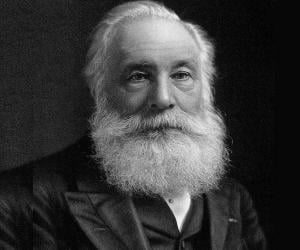
William Henry Perkin is best remembered for his chance discovery of the dye mauveine, made of aniline purple. He had apparently discovered the dye while attempting to synthesize quinine. The Royal Medal-winning British chemist also studied salicyl alcohol and flavoring agents and synthesized the first artificial perfume.
Arthur Eddington was an English physicist, astronomer, and mathematician. He wrote numerous articles that explained Albert Einstein's theory of general relativity to the English-speaking world. He began his career in academics and eventually shifted to astronomy, becoming the chief assistant to the Astronomer Royal at the Royal Greenwich Observatory. He was a recipient of the Henry Draper Medal.
Nobel Prize-winning physicist Henri Becquerel is known for his chance discovery of spontaneous radioactivity. Born into a family of scientists, Becquerel had been an engineer and a physics professor earlier. Marie Curie, who shared the Nobel with him and her husband, Pierre, was one of his doctoral students.
A descendant of Pennsylvania founder William Penn through his mother, Hermann von Helmholtz studied medicine, pushed by his father, in spite of being interested in the natural sciences. Best known for his law of conservation of energy, he coalesced the fields of medicine, physiology, math, and physics in his studies.
Nobel Prize-winning Dutch physicist Hendrik Lorentz, a major figure of the Second Dutch Golden Age, is remembered for his discovery of the Zeeman effect, along with his former student Pieter Zeeman, who shared the Nobel with Lorentz. His research on electromagnetic radiation prepared ground for Einstein’s special theory of relativity.
